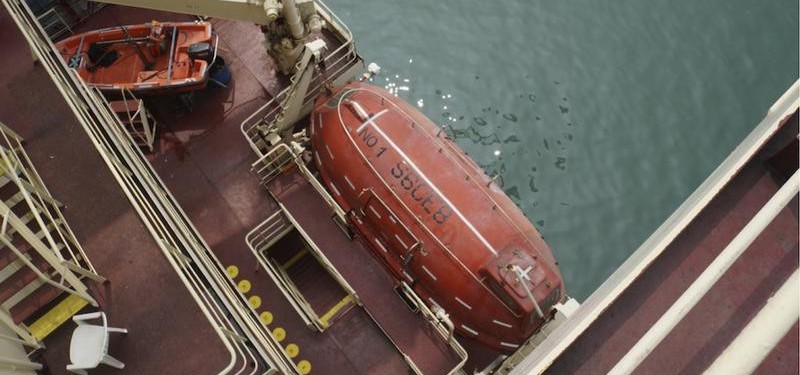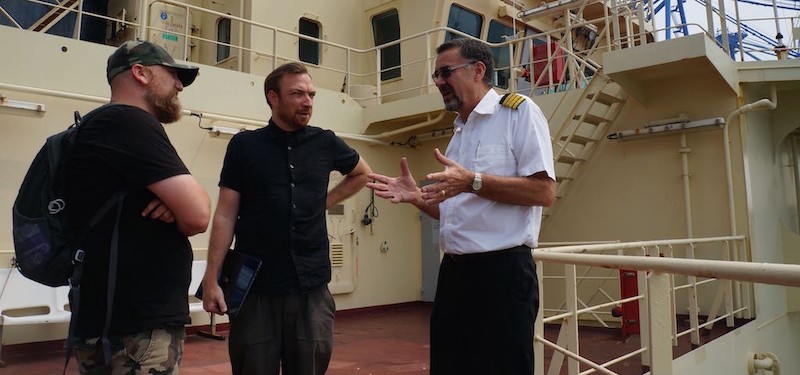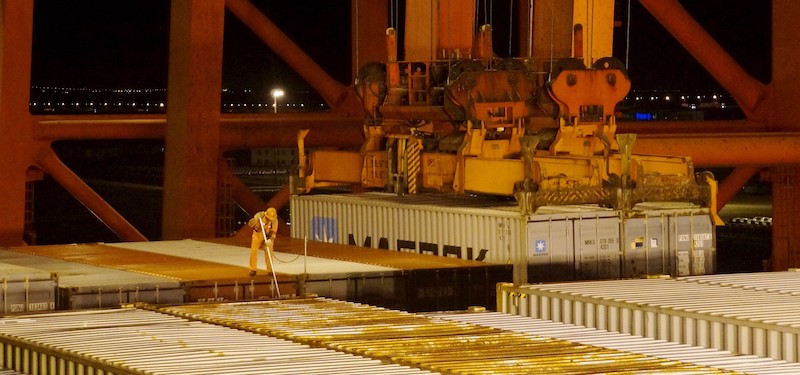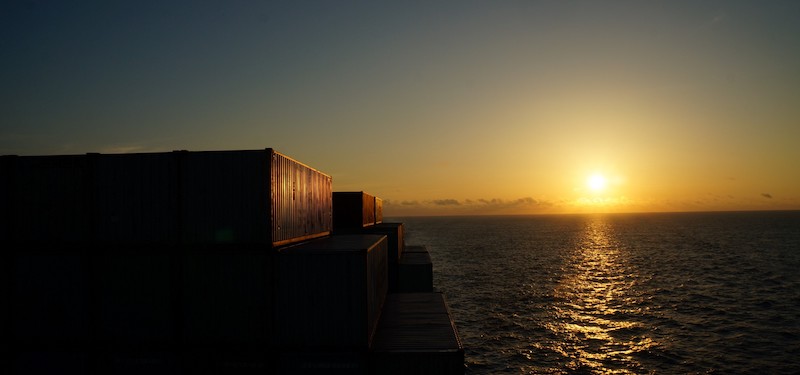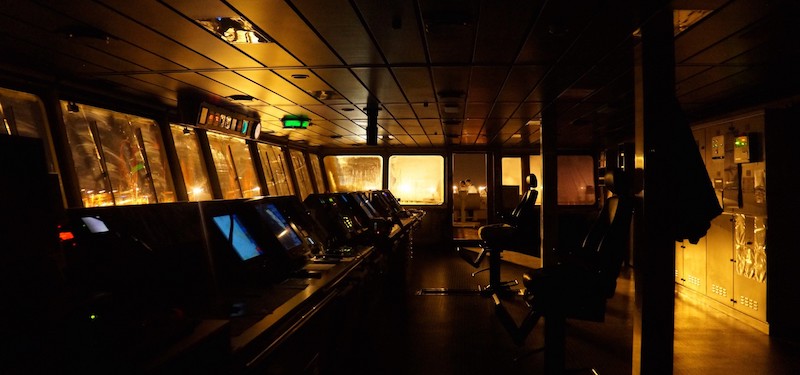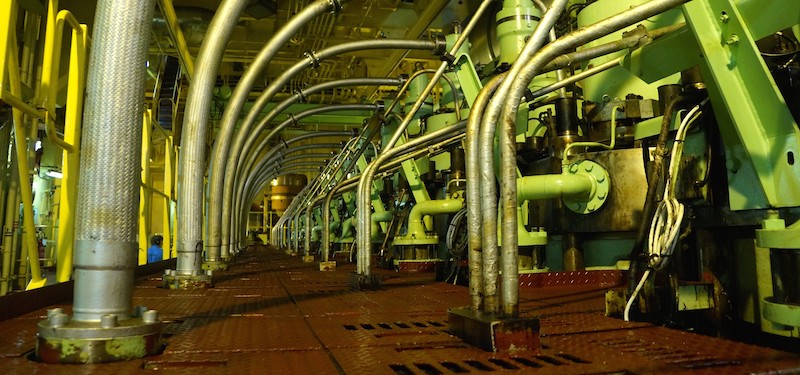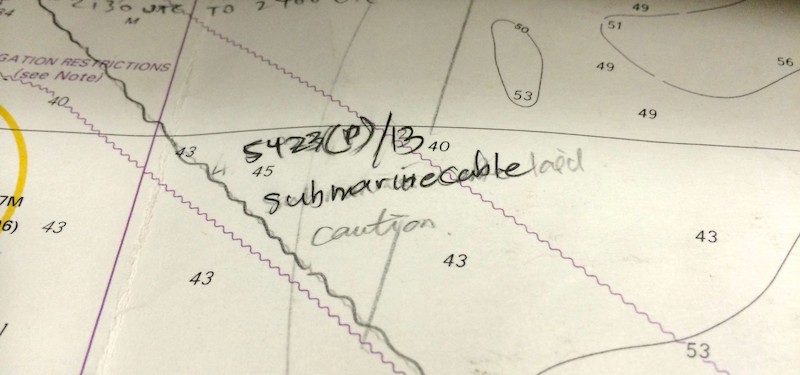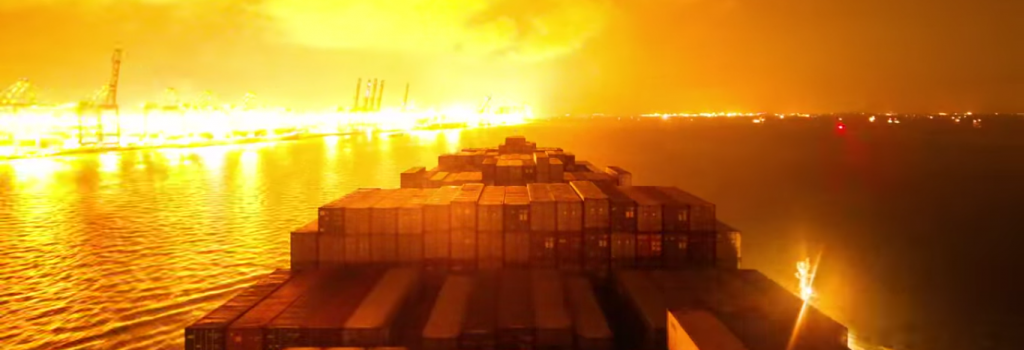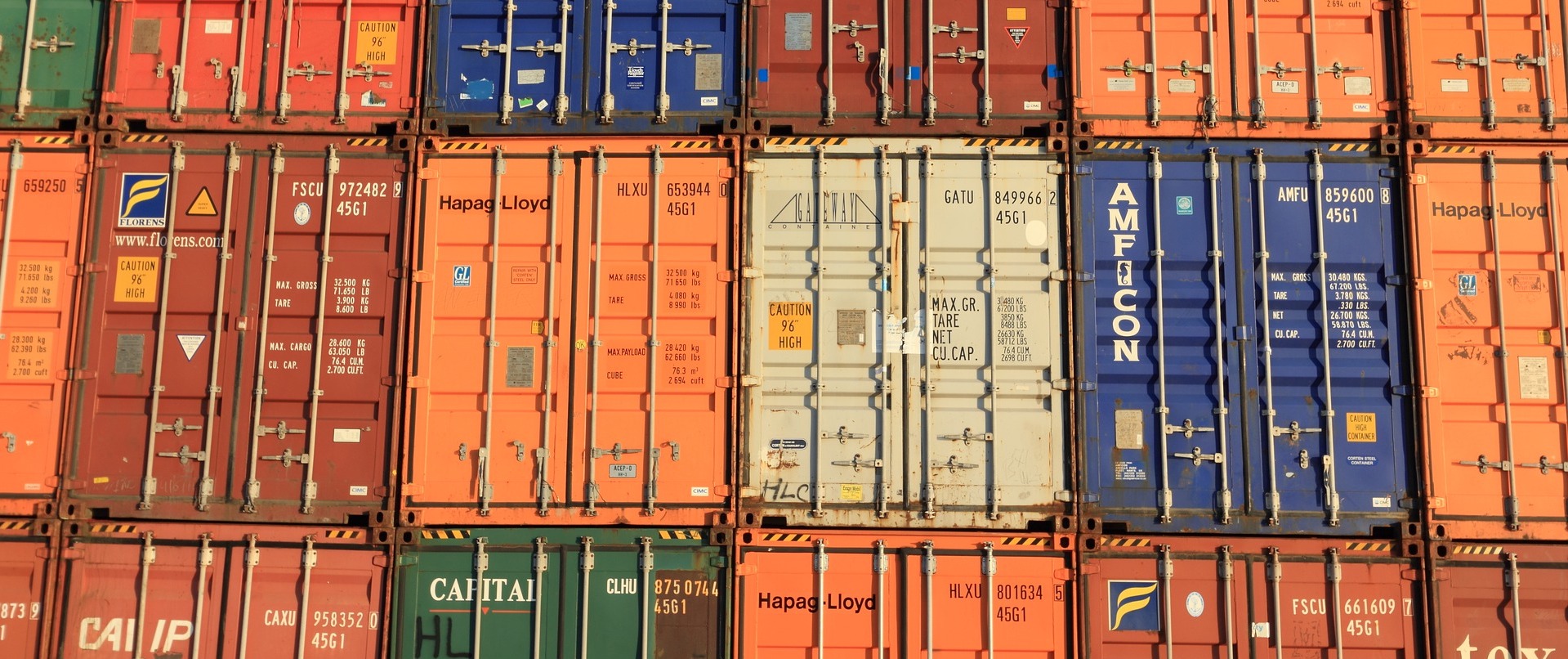

In 2014, Dan Williams boarded a Maersk container ship, and traveled as a passenger between ports in South Korea, China, and Taiwan. The aim was to discover the physical realities of global shipping–how the system that makes cheap, disposable consumer products appear on our store shelves, as if by magic, actually works.
Dan’s travelogue in nine parts recounts his experiences on board one of the vessels that forms a crucial part of the world’s current economic system.
Please note that this series is not available for republication under the terms of a Creative Commons license, as per most of our other content.

Episode 1: The Ship Is Your Best Lifeboat
When beginning a long voyage, the first thing you do is prepare to abandon ship

Episode 2: Last Voyage
A captain reflects on a lifetime spent at sea

Episode 3: From Whisky to Wifi
Staying entertained on a long voyage can be tricky–the internet is patchy, and alcohol is banned

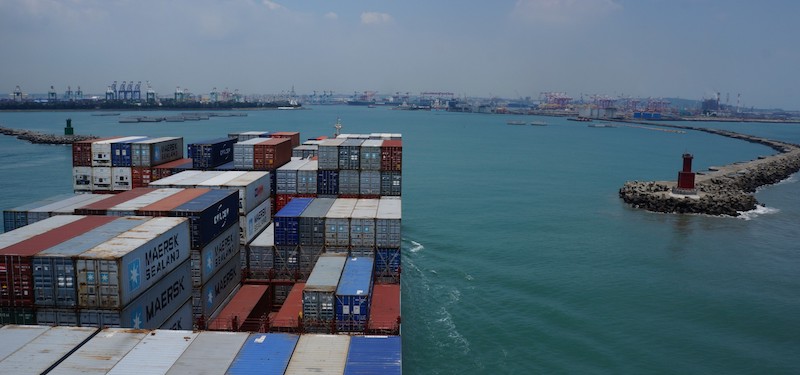
Episode 4: Shore Leave
After sailing halfway around the world, I found myself in a retail park the same as in any European city

Episode 5: Our Friend, the Twistlock
The humble twistlock is all that stops stacks of containers falling from ships into the sea

Episode 6: The Uncertain Logistical Life
Life on board a container ship often consists of rigidly-planned periods of calm

Episode 7: The Ship’s Cockpit
Modern container ships are guided by a plethora of advanced autopilot systems

Episode 8: Fix What’s Broken
From inside the engineering control room, a container ship feels like a vast machine

Episode 9: Links In a Network
Container ships and undersea cables both link together the global economic network

Bonus: The Global Electronics Supply Chain in 5 Videos
A tour through the different stages of how products are made, shipped, and sold across the globe


How We Get To Next was a magazine that explored the future of science, technology, and culture from 2014 to 2019. Postcards From A Supply Chain follows Dan Williams as he traces consumer goods back through the global shipping system to their source. It was organized by the Unknown Fields Division, a group of architects, academics, and designers at the Architectural Association School of Architecture in London.

